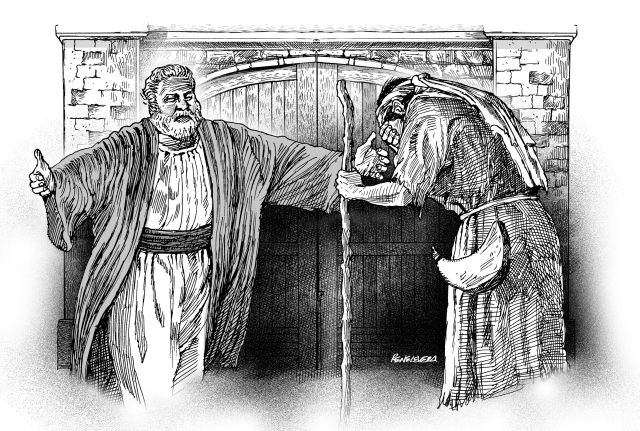
The weather has remained about the same since January – days of intense heat punctuated by heavy rain that usually falls at night, our awareness of which, because our snores drown out all cosmic noise, results from the puddles that stare back from the streets.
Why cannot March mimic December, and make an appearance replete with drama and anticipation, an entrance in the manner of Beethoven’s Fifth? (Which symphony, in one concert I attended years ago, an orchestra of senior citizens played, who were at a loss to start at the same time – clearly, what they had gained in age they had lost in coordination.)
I felt that each of them waited for the others to begin, keeping his eyes on his neighbors rather than on the conductor, who himself might have lacked confidence, and held himself back until he saw the musicians drawing their bows and blowing their flutes, oboes and clarinets. That night I learned the meaning of soft opening.
Hesitation can make mincemeat of intent, however noble. And I just hope that, whatever its purposes, and no matter its slow, inauspicious start, March will acquire enough momentum to reach its apogee and settle in its orbit, unperturbed and assured. I know it will recover from its initial doubts, as the orchestra did upon reaching the second movement, at which it rose to the lyricism that was required, for which the old men must have drawn on the memory of past and surviving loves.
And in this sense March parallels the parable that Jesus told, and which Luke narrates in his Gospel, about a father who had two sons. The younger asked his father for an advance of his inheritance, and, upon receiving it, romped away and wasted his fortune on loose living, until during a famine he found himself among the pigs, and wishing that he could eat their food.
Seeing his circumstances so reduced, he decided to return home and beg his father to let him work as one of the hired servants. But the father, seeing him coming, ran down the road to embrace him, and ordered that the fattened calf be killed and a feast held to celebrate the son’s return. The older son resented this and told his father that he had faithfully worked for him and did not even receive a goat which he could enjoy with his friends.
The father reminded him that they had always been together and all he had belonged to the son as well – still they should celebrate because his younger brother, who was lost, had now returned.
Luke does not delve at length into the thoughts of the younger son. What Luke tells us is that the man yearned for home in the midst of the pigs, and that he planned to just plead with his father to treat him, no longer as a son, but as a servant. It must have taken him time to reached this decision, and initially he must have hesitated to return home, having offended and being afraid to face his old man.
In an engraving, Albrect Dürer depicted this moment – the young man in a circle of hogs, looking at the distance while the grunting pigs milled about him as they gobbled up the feed. Not expecting a welcome, he must have debated within himself over and over again whether or not to return home at all.
But return he did.
At least for this March, the full moon, that regular revenant, speaks of a somewhat similar return. It appears on the 23rd, two days before that great day of repentance and forgiveness – Good Friday – the day when, after a year or so, or quite possibly a much longer time, of faithless, self-absorbed living, and recurring vacillation, we remember a Father that waits for us, and summon up enough courage to return home, and be embraced by the Father with the arms of Jesus extended on the cross.